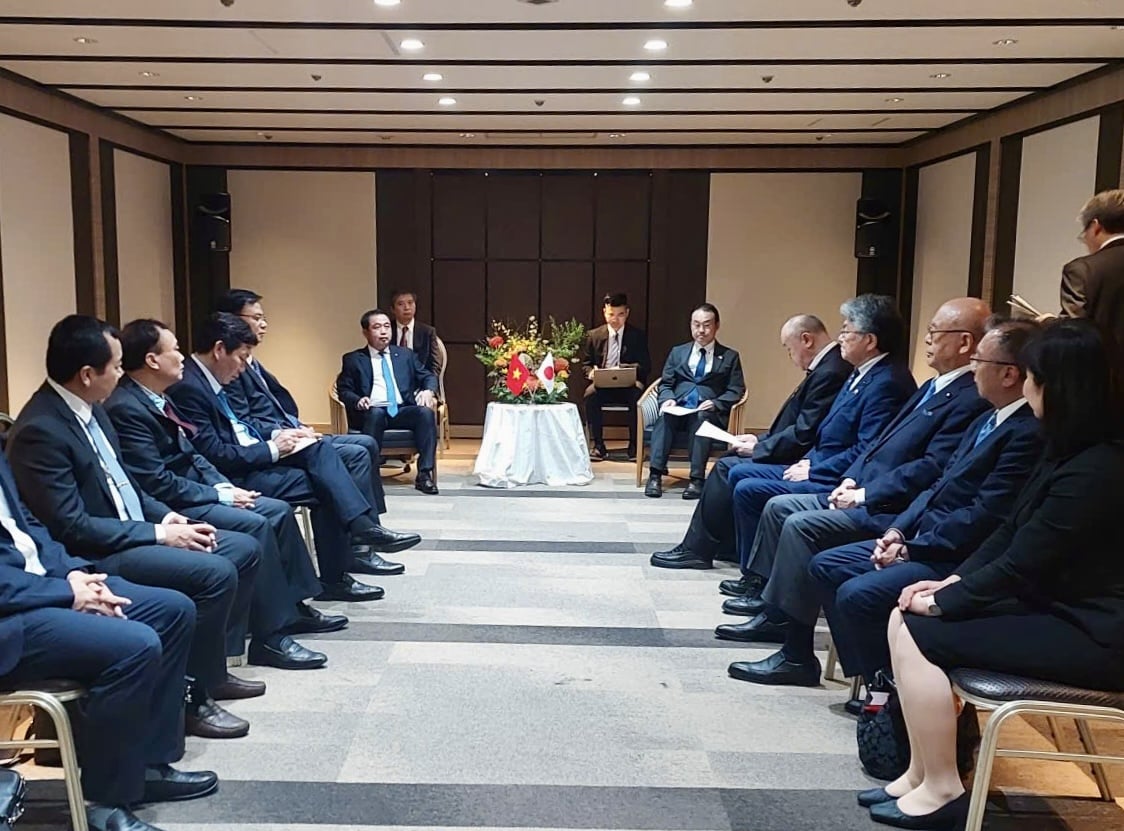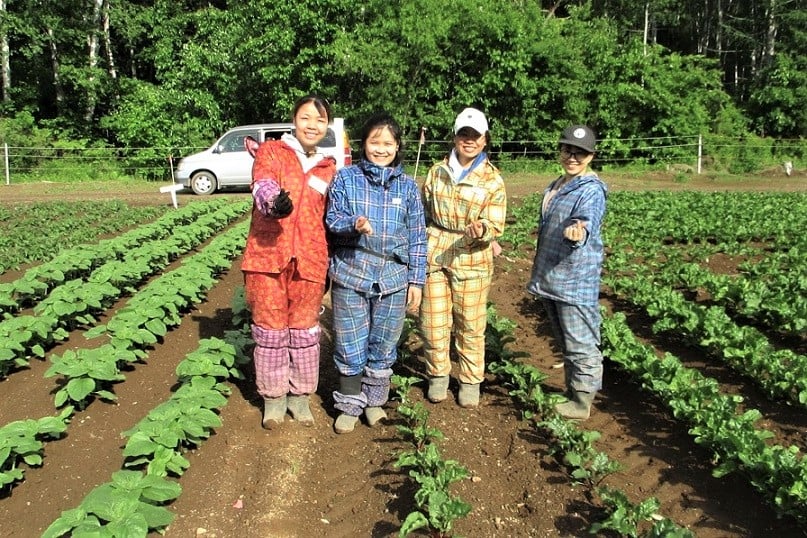December 21, 2025 | 09:55 GMT +7
December 21, 2025 | 09:55 GMT +7
Hotline: 0913.378.918
December 21, 2025 | 09:55 GMT +7
Hotline: 0913.378.918
On the afternoon of September 5, as part of his working visit to Japan, Acting Minister Tran Duc Thang met with Hokkaido Vice Governor Mitsuhashi Tsuyoshi. The visit holds particular significance, as it was initiated following an invitation from Mr. Tsutomu Takebe, Special Advisor to the Japan–Vietnam Parliamentary Friendship League and former Minister of Agriculture, Forestry and Fisheries of Japan, two years ago.
Hokkaido has long been a major agricultural hub, with strengths in processing and an agricultural culture closely aligned with Vietnam. Over the years, cooperation between the Ministry of Agriculture and Environment and Hokkaido has achieved notable milestones, ranging from management and land-water governance training programs to green agricultural production models, modern farming processes, and cooperative models.
Mechanisms promoted by Advisor Takebe have paved the way for the acceptance of Vietnamese interns, enabling many agricultural extension officers, students, and engineers from Vietnam to go to Hokkaido to study, practice, and exchange experiences in livestock, crop production, and agricultural machinery.

Scene of the working session between Acting Minister Tran Duc Thang and Hokkaido Vice Governor Mitsuhashi Tsuyoshi. Photo: ICD.
Sharing insights on agriculture, Vice Governor Mitsuhashi Tsuyoshi noted that Hokkaido accounts for one-quarter of Japan’s agricultural land, with an average farm size of over 22 hectares per household—ten times the national average. The region is also a major producer of key agricultural products such as dairy, potatoes, red beans, wheat, and beef, which have become nationally recognized brands. However, Hokkaido faces a major challenge as its agricultural workforce is rapidly aging, with an average age of 60–65, while the supply of young labor is increasingly scarce.
In contrast, Vietnam is regarded as a dynamic tropical agricultural economy, benefiting from diverse climates, a wide range of products, and strong capacity to supply international markets. In 2024, Vietnam’s agricultural, forestry, and fisheries exports reached USD 63 billion, with a target of USD 70 billion in 2025. One of Vietnam’s key advantages is its abundant young workforce, serving as a crucial driver for growth.
However, Vietnam still needs to enhance technical skills, strengthen the application of science and technology, and accelerate mechanization and modernization of production to improve productivity, quality, and added value of agricultural products.
Therefore, the two sides can complement each other’s strengths: Hokkaido brings advanced technology and management models, while Vietnam offers young labor, fertile land, and a large market—opening up promising opportunities for effective and sustainable cooperation.
Acting Minister Tran Duc Thang expressed his delight at visiting Hokkaido - a region renowned not only for its stunning natural landscapes but also as one of Japan’s leading agricultural hubs.
He emphasized that, with their respective potential and complementary strengths, Hokkaido and Vietnam’s localities are poised to develop more concrete, practical, and effective cooperative projects, thereby further deepening the comprehensive friendship and partnership between Vietnam and Japan in the years ahead.
In this spirit of cooperation, Vietnam hopes to learn from Hokkaido’s advanced experience and technology in smart farming, farm management, and post-harvest processing, particularly for key products such as dairy, potatoes, red beans, and sugar beets.
“Both sides can jointly implement demonstration projects in Vietnam linked to value chains, alongside the transfer of techniques and technologies. We encourage the development of ecological, circular agricultural models that reduce greenhouse gas emissions, contributing to the goal of achieving net-zero emissions by 2050, as committed by the Vietnamese Prime Minister at COP26,” Acting Minister Thang stated.

Vietnamese interns practicing agriculture in a Hokkaido field. Photo: Kokoro.
The Vietnamese side is ready to send young workers to Hokkaido to both study and work in the dairy, vegetable, and livestock sectors, while also encouraging Hokkaido to accept interns and agricultural engineers, expand technician training programs, and facilitate expert exchanges.
The two sides are expected to jointly explore the establishment of a Japan–Vietnam Agricultural Training Center in Vietnam, which would serve as a hub for cooperation, technology transfer, and the development of high-quality human resources for the agricultural sector.
Regarding agricultural trade, Vietnam proposes to strengthen exports to Japan of key products such as tropical fruits, seafood, coffee, cashews, black pepper, and timber, while also being ready to expand imports of high-quality products from Hokkaido, including dairy, potatoes, red beans, sugar beets, and beef.
This working visit not only strengthens the traditional relationship but also carries strategic significance, opening opportunities for technology transfer projects, high-quality human resource training, and the development of large-scale cooperative models, contributing to the realization of modern and sustainable agricultural development for both sides.
Translated by Phuong Linh

(VAN) Risk assessment in food safety management not only helps protect public health but also promotes sustainable development.

(VAN) Prime Minister chaired the 26th meeting of the National Steering Committee on Illegal, Unreported, and Unregulated (IUU) Fishing.

(VAN) Cuba is currently streamlining procedures to attract investors, with many new policies shaped by the practical experiences of Vietnamese projects operating in the country.

(VAN) Patrol Team No. 15 has been executing patrol, inspection, and control duties in the Southwest waters, a region identified as having a high risk of violations.

(VAN) UNICEF, IOM, and the U.S. Department of State have worked together to ensure the justice system becomes a protective shield for children and other vulnerable groups.

(VAN) As a key driving force of green transition, the circular economy is being identified as a strategic pillar of Viet Nam's new growth model.

(VAN) UNICEF and IOM receive this aid and provide essential services to assist families affected by recent storms and floods.